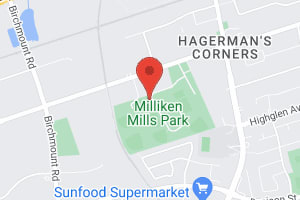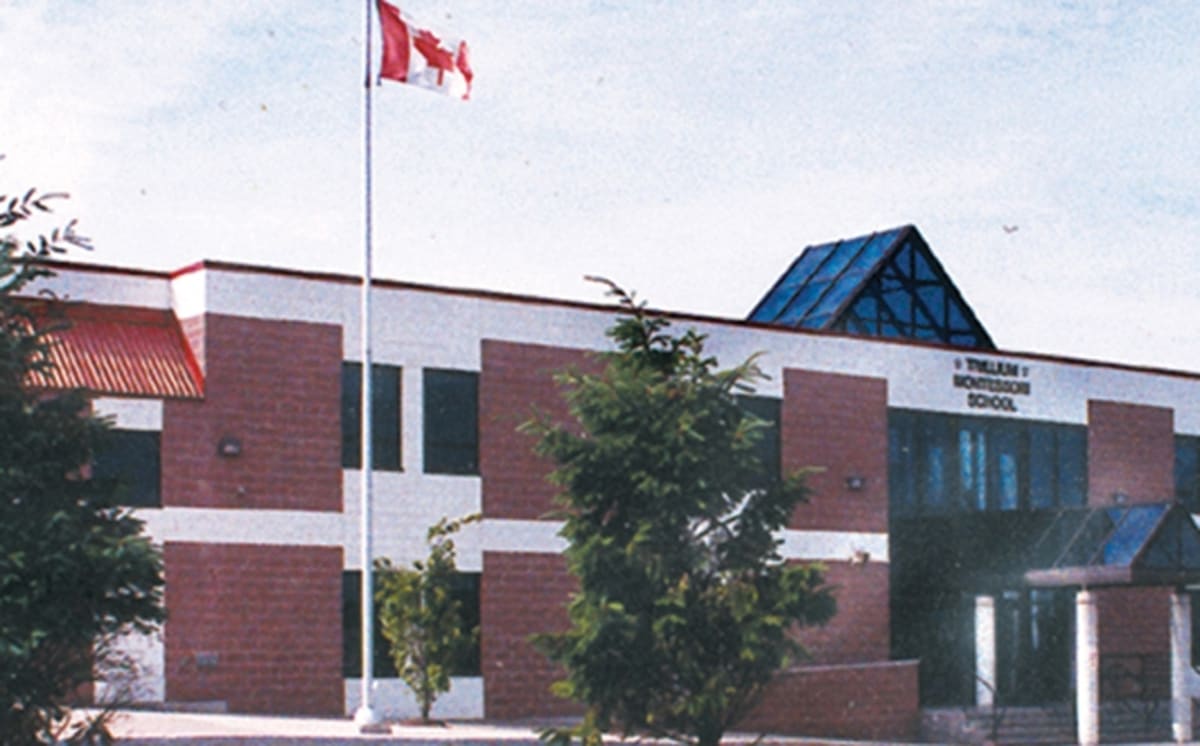
How we see Trillium School
Compare with:
How Trillium School sees itself
"Founded in 1991, Trillium School is a co-educational school with Montessori-based kindergarten. Trillium serves students from 18 months to Grade 12. The school is housed in a 38,000 sq ft facility, complete with a full-sized gymnasium, computer and science laboratories, a library and fully contained schoolyard. Trillium believes in developing the whole child through a balanced approach to education. The enriched curriculum and high expectations demand a disciplined approach to students' studies. Our High School division provides an enriched, challenging academic programme in a nurturing and stimulating learning environment. Students are encouraged to show initiative and leadership, and challenge themselves to reach their potential. Our university preparation program is designed to identify and prepare the students to reach their post-secondary goals. Trillium offers assistance to the students and help them select the most suitable programmes in colleges and universities. The High School offers a number of awards and scholarships to incoming and current students every year to recognize students' success in academic and other areas. We encourage students to pursue excellence and achieve their best in all intellectual, artistic, physical and social pursuits."
"All our teachers and staff stay at the school for many years.
The parents think that all our teachers and staff are very friendly."


How people from the school’s community see Trillium School
Top-down influence on the school’s direction and tone
Lily Moon, Principal
Trillium was founded in 1991. The school is committed to establishing within each of its students a strong foundation of work and study skills, a varied and extensive base of knowledge, and an ability to critically examine, discuss,and assess the world around them. Trillium graduates shall be global citizens, compassionate and tolerant in their perspective. They will have the self-confidence to try new things and the self-motivation to strive throughout their lives to meet high social, moral and work standards.
Most big schools provide your extroverted child with plenty of social opportunities and the ability to interact with different peer groups with a wide range of personalities, interests, values, etc. A larger student population and more extracurriculars—including activities like team sports, arts programs, and debate—will give them a broader scope of opportunities to participate in events that scratch their interpersonal itch. “This may also give them the opportunity to hone certain skills,” say Ann and Karen Wolff of Wolff Educational Services. “For instance, they might run for student council to develop leadership and public speaking skills and learn to be a voice for other students.”
If you’re considering a Montessori school for your extroverted child, make sure to look into the amount of unstructured social time it provides. Some Montessori schools don’t have recess, and may limit free time, which is often when kids get their most stimulation. While kids spend plenty of time interacting in a Montessori classroom, a very outgoing child might find the lack of unstructured time less invigorating. Note: The more “orthodox” the Montessori environment, the more it tends to limit recess and unstructured social time.
At a boarding school, your extroverted child will likely enjoy seeking out and interacting with peer groups from different backgrounds, away from home. In fact, studying and living with other kids for an extended period of time, as many alumni tell us, provides the unique opportunity to form close relationships that can last well beyond the school years. Many boarding schools also have large student populations and more extracurriculars—including activities like student council, team sports, and arts programs—which will give your outgoing child a broader scope of opportunities to feed off the energy of others, and possibly even become a leader, in a dynamic environment.
Keep in mind, though, “Being an extrovert can be a catalyst for getting involved in lots of activities, which can sometimes be hard to manage,” says Joanne Foster, Toronto-based education consultant and author of ABCs of Raising Smarter Kids. “For instance, a particularly extroverted child may try to end up juggling too many people and activities. While they still may thrive at a boarding school, it helps to know your child and how much social interaction they can handle comfortably.”
Make sure any prospective school, no matter what size, provides the right social environment to help your child feel at home, make friends, and develop confidence. This is especially important at big schools, which are sometimes more socially overwhelming and challenging for an introvert to find their bearings in. Of course, “Because larger schools usually have a more diverse student population, introverted kids are more likely to find a small group of people like them, a peer group they can relate to and find acceptance from,” says Dona Matthews, Toronto-based education consultant and co-author (with Joanne Foster) of Beyond Intelligence.
Bigger schools often have a broader scope of extracurricular activities, which is another way to help your child meet the right group of friends. “This may also give them the opportunity to develop certain skills,” say Ann and Karen Wolff of Wolff Educational Services. “For instance, they might run for student council to develop leadership and public speaking skills and learn to be a voice for other students. Remember, though, each child is different—so what works for one may not work for another.”
At a Montessori school, your introverted child will often work independently on their own tasks, e.g., during two-hour-plus uninterrupted work periods, which can boost their focus and concentration. They’ll also often work in small groups with kids of different ages, where they’ll learn from and mentor their peers, which can help them come out of their shell, be more assertive, and learn critical social skills. Ask how much, if any, unstructured social time is provided, since this varies between Montessori schools.
At a boarding school, your introverted child will be more motivated (and virtually compelled) to seek out and interact with different peer groups. Away from home and in a new environment, they’re more likely to take the initiative to form close friendships, which can boost their independence and confidence, and help them develop critical social skills.
"Consider, though, whether your child will be comfortable and confident while living away from home, and while having to navigate the various, and sometimes unforeseen social-emotional experiences, alongside the academic challenges,” says Joanne Foster, education expert and author of ABCs of Raising Smarter Kids. Finally, ensure support systems are in place to promote their social and emotional development, and that your child is willing and prepared to take advantage of them. Your child will often need to advocate for themselves at a boarding school, and they’ll need confidence and perseverance to do so.
THE OUR KIDS REPORT: Trillium School
Next steps to continue your research:
Continue researching Trillium School with OurKids.net, or visit school website.